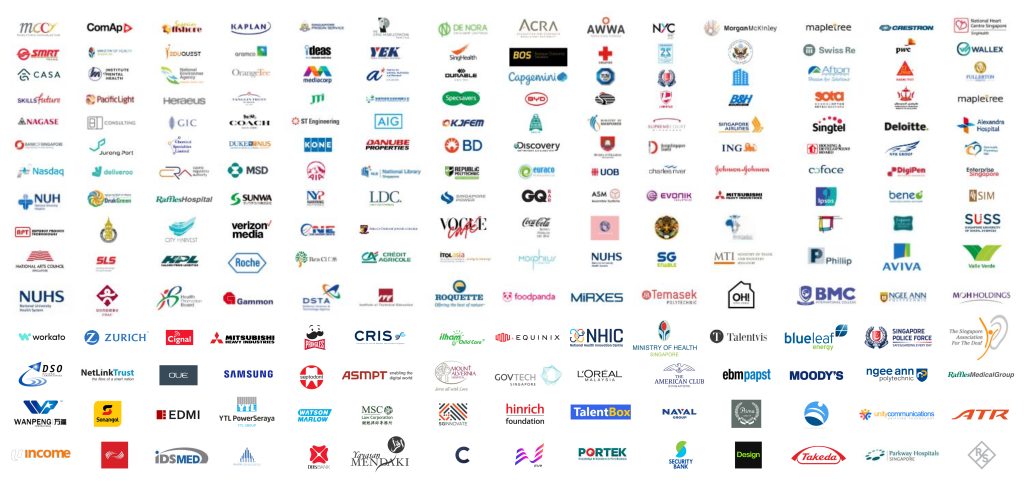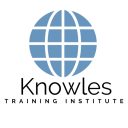Ergonomics In The Workplace Training Course in Mauritius
Our corporate training course is also available in Port Louis, Beau Bassin-Rose Hill, Vacoas-Phoenix, Curepipe, Quatre Bornes, Triolet, Goodlands, Centre de Flacq, Mahebourg, Saint Pierre, Rose Belle, Pamplemousses, Bel Air Rivière Sèche, Grand Baie, Plaine Magnien, Rivière des Anguilles, Terre Rouge, Bambous, Surinam, Lalmatie, Nouvelle France, Grand Gaube, Rivière du Rempart, Grand Bois, Grand Bay, Camp Diable, L’Escalier, Baie du Cap, Chamouny, Plaine des Papayes, Flic-en-Flac, Le Morne, and Chamare.
 Nestled amidst the azure waters of the Indian Ocean lies the enchanting island of Mauritius, a paradise renowned for its stunning beaches, lush landscapes, and vibrant culture. Amidst this idyllic setting, where palm trees sway gently in the tropical breeze, a new era of workplace excellence is dawning. In the heart of this island gem, professionals from diverse industries gather for a transformative experience – the Ergonomics in the Workplace Training Course.
Nestled amidst the azure waters of the Indian Ocean lies the enchanting island of Mauritius, a paradise renowned for its stunning beaches, lush landscapes, and vibrant culture. Amidst this idyllic setting, where palm trees sway gently in the tropical breeze, a new era of workplace excellence is dawning. In the heart of this island gem, professionals from diverse industries gather for a transformative experience – the Ergonomics in the Workplace Training Course.
Picture yourself stepping into a world where productivity meets comfort, where efficiency intertwines with well-being. The course venue exudes an atmosphere of learning and growth, set against the backdrop of Mauritius’s breathtaking scenery. Participants embark on a journey of discovery, exploring the principles of ergonomics and their profound impact on workplace dynamics. From the bustling offices of Port Louis to the serene retreats along the coast, the principles of ergonomic design are unveiled, promising a paradigm shift in how workspaces are envisioned and crafted.
Guided by seasoned experts in the field, attendees delve into the intricate art of ergonomic assessment, learning to identify and mitigate potential hazards lurking within the workplace. Through engaging workshops and hands-on activities, they acquire practical skills to optimise workstations, fostering a culture of safety and well-being. From ergonomic furniture arrangements to tailored exercise routines, every aspect is meticulously crafted to enhance both productivity and employee satisfaction. As the course unfolds, participants find themselves empowered with the knowledge and tools to revolutionise their workplaces for the betterment of all. Ergonomics in the Workplace Training Course in Mauritius stands as a beacon of progress, illuminating the path towards a healthier, more efficient future for organisations across the island nation.
Who Should Attend this Ergonomics In The Workplace Training Course in Mauritius
In the heart of the mesmerising island nation of Mauritius, where the rhythm of the ocean meets the vibrant pulse of its bustling cities, a transformative opportunity awaits. Welcome to the Ergonomics in the Workplace Training Course – a pioneering initiative poised to revolutionise how businesses approach the well-being and efficiency of their workforce. Against the backdrop of Mauritius’s breathtaking landscapes and rich cultural tapestry, professionals from various sectors converge to embark on a journey of discovery, empowerment, and growth.
Imagine yourself amidst the tranquil allure of Mauritius, surrounded by like-minded individuals eager to unlock the secrets to creating safer, more ergonomic work environments. Led by seasoned experts in the field, this course offers a comprehensive exploration of the principles and practices underpinning ergonomic design. From understanding the physiological needs of the human body to implementing practical solutions tailored to specific workplace settings, participants gain invaluable insights into fostering productivity and enhancing employee satisfaction. The Ergonomics in the Workplace Training Course in Mauritius promises to be a catalyst for positive change, setting a new standard for workplace well-being and performance.
- Executives
- Team Leaders
- Entrepreneurs
- Educators
- Recent Graduates
Course Duration for Ergonomics In The Workplace Training Course in Mauritius
The “Ergonomics In The Workplace Training Course in Mauritius” offers flexibility to suit diverse schedules, with options ranging from a comprehensive 3 full-day programme, perfect for in-depth exploration and hands-on learning, to a condensed 1-day format for those seeking a quick yet impactful immersion into ergonomic principles. Additionally, participants can opt for a half-day session, ideal for busy professionals looking to gain essential insights in a shorter timeframe, or choose from focused modules such as a 90-minute workshop or a concise 60-minute seminar, tailored to address specific aspects of workplace ergonomics. No matter the duration chosen, each training session is designed to empower attendees with practical knowledge and strategies to enhance workplace safety, efficiency, and employee well-being.
- 2 Full Days
- 9 a.m to 5 p.m
Course Benefits of Ergonomics In The Workplace Training Course in Mauritius
Embark on a transformative journey with the “Ergonomics In The Workplace Training Course in Mauritius,” where participants gain invaluable insights and practical skills to enhance workplace safety, efficiency, and employee well-being.
- Increased productivity
- Reduced risk of workplace injuries
- Improved employee morale and satisfaction
- Enhanced comfort and well-being for employees
- Better retention of skilled workforce
- Cost savings from reduced absenteeism and healthcare expenses
- Compliance with health and safety regulations
- Optimised use of workspace and resources
- Prevention of musculoskeletal disorders
- Creation of a positive organisational culture
Course Objectives for Ergonomics In The Workplace Training Course in Mauritius
Embark on a journey of professional development and workplace transformation with the “Ergonomics In The Workplace Training Course in Mauritius,” designed to equip participants with the knowledge and skills necessary to create ergonomic work environments that foster productivity, safety, and employee well-being.
- Understanding the principles of ergonomic design and their application in various workplace settings
- Implementing strategies to identify and mitigate potential ergonomic hazards
- Conducting ergonomic assessments to evaluate and improve workstations and workflows
- Providing training and resources to empower employees to adopt ergonomic practices in their daily activities
- Collaborating with stakeholders to develop and implement ergonomic policies and procedures
- Utilising ergonomic tools and technologies to enhance workplace efficiency and safety
- Promoting a culture of health and well-being through ergonomic initiatives and interventions
- Monitoring and evaluating the effectiveness of ergonomic interventions and making adjustments as needed
- Integrating ergonomic considerations into facility design and renovation projects
- Educating management and employees on the importance of ergonomic awareness and participation
- Establishing partnerships with healthcare providers and other relevant stakeholders to support ergonomic initiatives
- Continuously updating knowledge and skills in the field of ergonomics through professional development opportunities
Course Content for Ergonomics In The Workplace Training Course in Mauritius
Embark on a comprehensive exploration of workplace ergonomics with the “Ergonomics In The Workplace Training Course in Mauritius,” delving into a range of topics aimed at enhancing productivity, safety, and employee well-being.
- Understanding the Principles of Ergonomic Design:
- Exploring the fundamentals of ergonomic design and its impact on employee health and performance.
- Examining case studies and best practices in ergonomic design across different industries.
- Understanding the relationship between ergonomics and productivity.
- Implementing Strategies to Identify and Mitigate Ergonomic Hazards:
- Learning techniques for identifying common ergonomic hazards in the workplace, such as repetitive motion tasks and poor workstation setup.
- Developing strategies to mitigate ergonomic risks through ergonomic equipment, task rotation, and training.
- Utilizing ergonomic assessment checklists to identify risk factors.
- Conducting Ergonomic Assessments:
- Understanding the process of conducting ergonomic assessments, including observation, data collection, and analysis.
- Applying ergonomic assessment tools and techniques to evaluate workstations, workflows, and job tasks.
- Documenting assessment findings and recommending improvements.
- Providing Training and Resources for Employees:
- Designing and delivering ergonomic training sessions to educate employees on proper posture, workstation setup, and movement techniques.
- Creating resources such as ergonomic guidelines, posters, and online tutorials to support ongoing ergonomic awareness and adoption.
- Developing ergonomic champions within teams to promote best practices.
- Collaborating on Ergonomic Policies and Procedures:
- Engaging with stakeholders from HR, health and safety, and management to develop comprehensive ergonomic policies and procedures.
- Facilitating discussions and workshops to gather input and consensus on ergonomic initiatives.
- Reviewing and updating ergonomic policies regularly to reflect current standards.
- Utilising Ergonomic Tools and Technologies:
- Exploring innovative ergonomic tools and technologies, such as adjustable desks, ergonomic chairs, and assistive devices, to enhance workplace safety and efficiency.
- Integrating ergonomic software applications for ergonomic risk assessments and ergonomic workstation design.
- Evaluating the cost-effectiveness of ergonomic tools and technologies.
- Promoting a Culture of Health and Well-being:
- Implementing wellness programmes and initiatives to promote physical activity, stress management, and healthy lifestyle choices.
- Cultivating a supportive work environment that values employee health and well-being as integral to organisational success.
- Encouraging employee participation in health and wellness activities.
- Monitoring and Evaluating Ergonomic Interventions:
- Establishing metrics and benchmarks to measure the effectiveness of ergonomic interventions in reducing injuries and improving productivity.
- Conducting regular evaluations and feedback sessions to assess the impact of ergonomic initiatives and make data-driven adjustments.
- Reporting ergonomic intervention outcomes to stakeholders.
- Integrating Ergonomic Considerations into Facility Design:
- Collaborating with architects, designers, and facilities managers to integrate ergonomic principles into workplace design and renovation projects.
- Ensuring compliance with ergonomic guidelines and standards in the layout, furniture selection, and equipment placement.
- Evaluating the long-term benefits of ergonomic facility design.
- Educating Management and Employees:
- Providing educational sessions and workshops to raise awareness about the importance of ergonomic awareness and participation.
- Engaging management and employees in discussions about ergonomic benefits and strategies for implementation.
- Distributing regular updates and newsletters on ergonomic practices and benefits.
- Establishing Partnerships with Healthcare Providers:
- Forging partnerships with local healthcare providers, physiotherapists, and ergonomics specialists to support ergonomic initiatives and provide expert guidance.
- Collaborating on injury prevention programmes, ergonomic assessments, and rehabilitation services.
- Hosting joint seminars and workshops with healthcare partners.
- Continuously Updating Knowledge and Skills:
- Encouraging ongoing professional development through seminars, conferences, and certifications in the field of ergonomics.
- Fostering a culture of lifelong learning and skill enhancement to stay abreast of the latest research, trends, and innovations in workplace ergonomics.
- Creating a library of ergonomic resources for continuous learning.
Course Fees for Ergonomics In The Workplace Training Course in Mauritius
Enrolment in the “Ergonomics In The Workplace Training Course in Mauritius” offers participants the opportunity to select from four pricing options tailored to accommodate various budgetary constraints. While the specifics of each package may vary, all options provide exceptional value, encompassing comprehensive course materials, expert instruction, and practical hands-on learning experiences. Whether opting for a standard package or a premium offering, participants can expect to receive unparalleled access to knowledge and resources aimed at transforming workplace environments for the betterment of all.
- USD 679.97 For a 60-minute Lunch Talk Session.
- USD 289.97 For a Half Day Course Per Participant.
- USD 439.97 For a 1 Day Course Per Participant.
- USD 589.97 For a 2 Day Course Per Participant.
- Discounts available for more than 2 participants.
Upcoming Course and Course Brochure Download for Ergonomics In The Workplace Training Course in Mauritius
Stay tuned for exciting updates and the availability of brochures detailing the latest offerings of the “Ergonomics In The Workplace Training Course in Mauritius.” Be among the first to receive information on upcoming sessions, new modules, and special promotions by subscribing to our newsletter or visiting our website for downloadable resources. Explore the possibilities of transforming your workplace into a safer, more ergonomic environment that fosters productivity and well-being with the help of our comprehensive training course.

